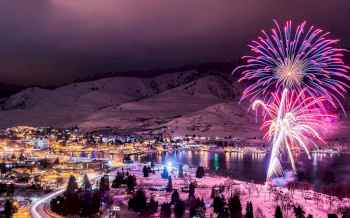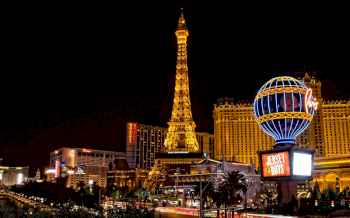What Living in Morocco as an Expat is Really Like
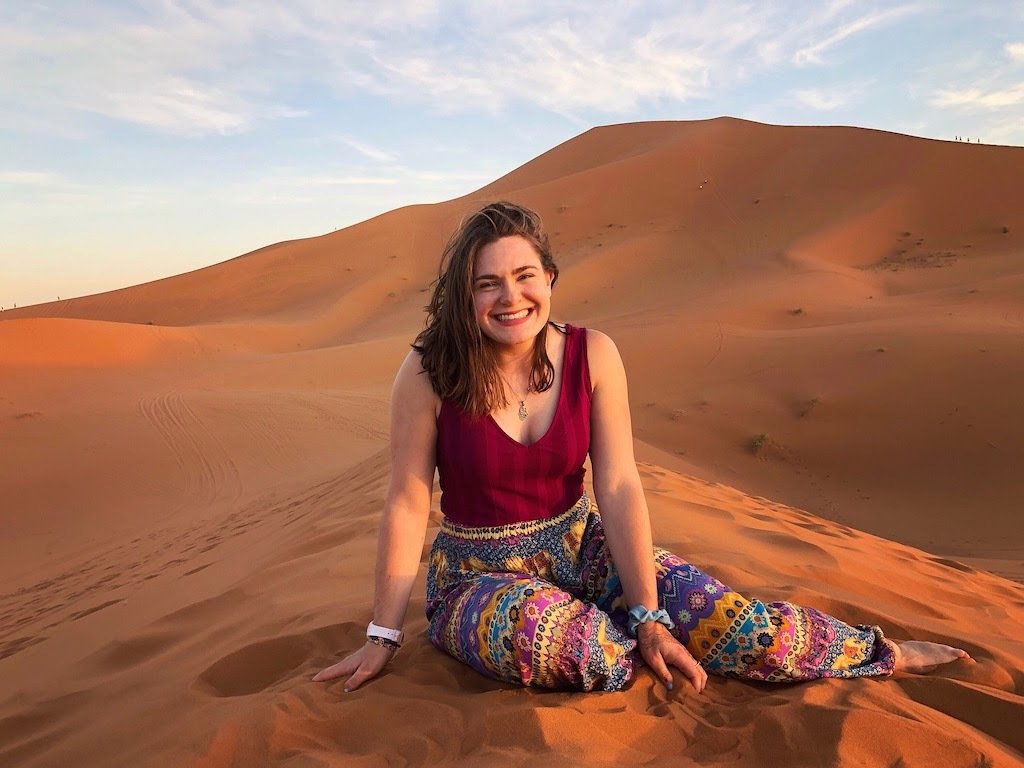
For this fall’s Living Abroad series, our next stop is Morocco. Sinclair, an American elementary school teacher, lives in Tangier, Morocco’s third-largest city. Here, Sinclair describes Moroccan nut, date, and avocado smoothies, her experience dating in Morocco, and Tangier’s unlikely love for Birkenstocks…
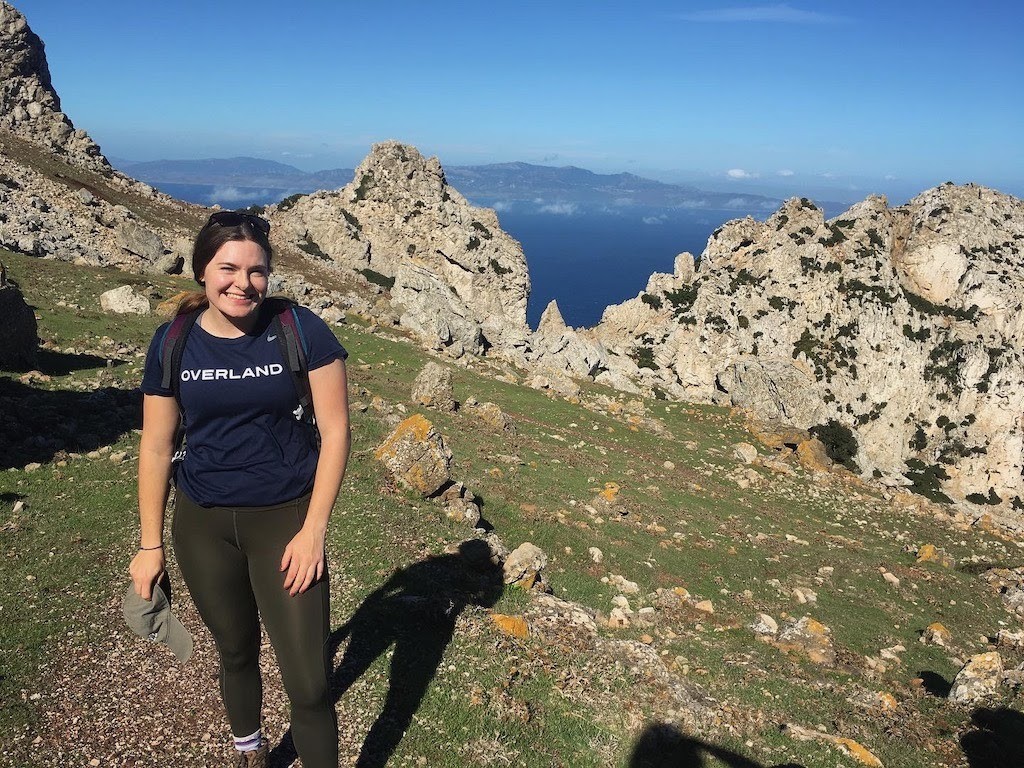
Sinclair’s background: I moved to Morocco in September 2019 and quickly fell in love with the country. Everyone I met was incredibly kind and welcoming; I felt at home shortly after arriving. I liked it so much that I did not want to leave, even when COVID-19 hit Morocco in 2020 and I had the opportunity to return to the US. Even though the past year and a half have been incredibly challenging and stressful, so much good came out of it through friendships and making strides in my career. Morocco has so much to offer and I have been on an incredible adventure, and through it, I found a place I can see myself thriving in. I feel like I am following my heart and living my life to the fullest.
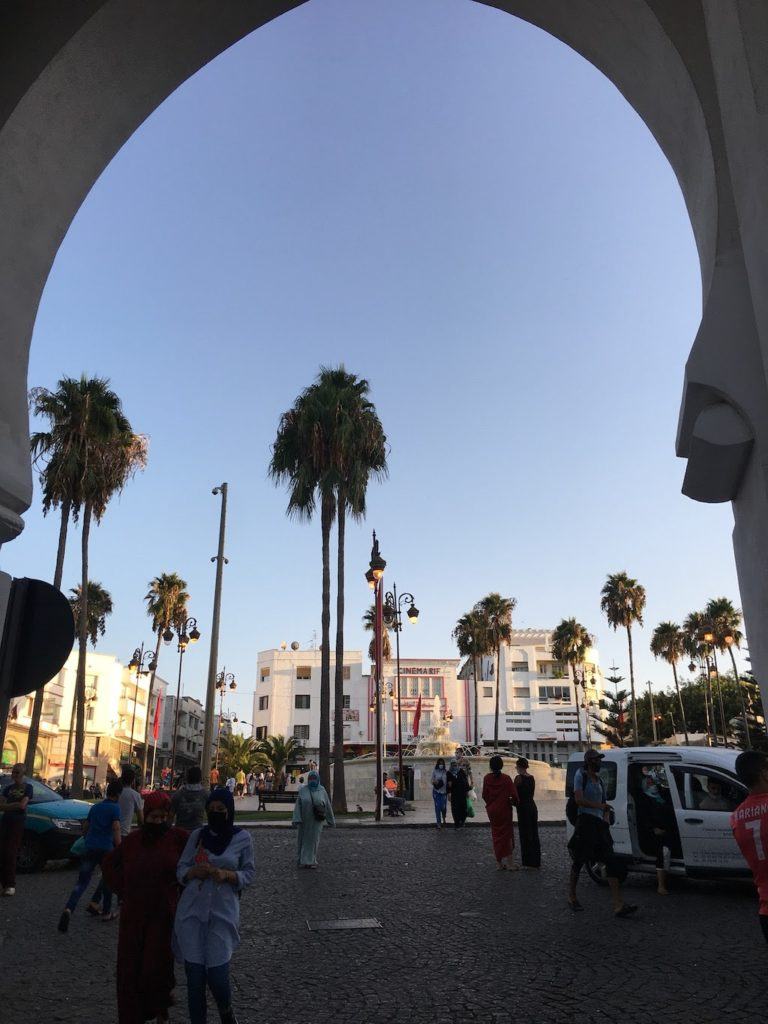
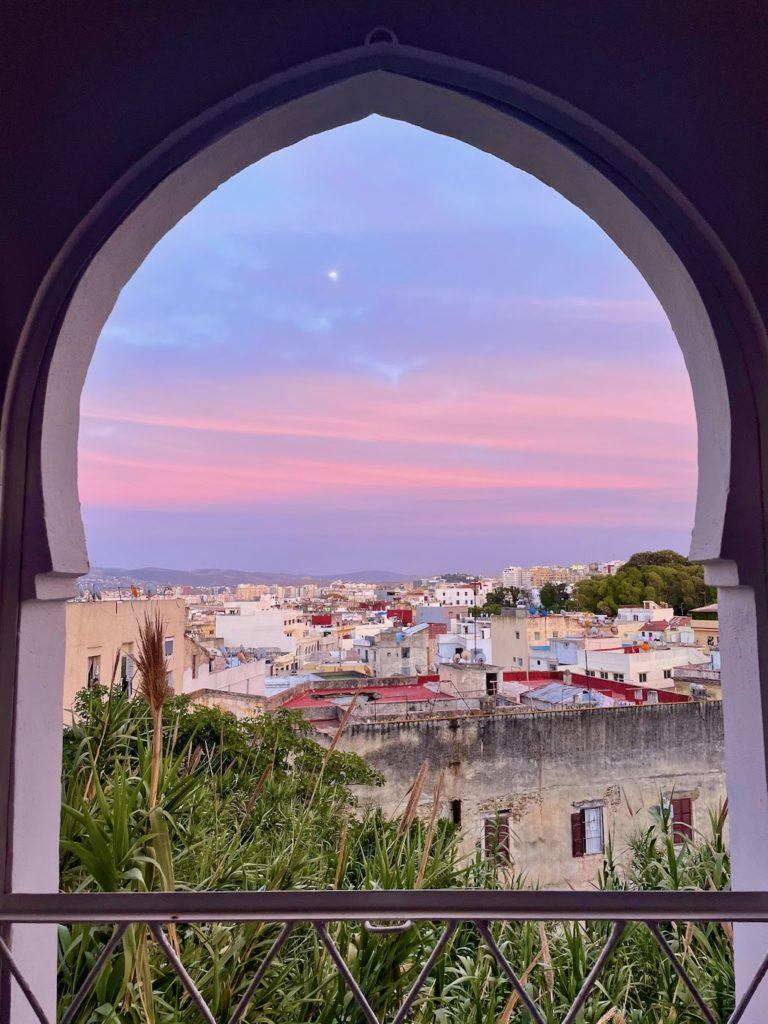
On the natural beauty: Morocco has inspired my photography due to its seemingly effortless beauty. There is something very special about the light in Morocco that helps make it so photogenic, along with its vibrant colors and charming streets. Everywhere I turn I am struck by tiny moments of art from a sweeping archway of a doorway, rooftop views of the city and the ocean to the street cats lounging among food vendors.
On the cost of living: The cost of living in Morocco is very affordable. Rent varies from city to city, but you can find apartments anywhere from $200-$800 a month. In regards to other expenses, it is easy to find a meal that costs anywhere from $2-6. At fancier restaurants, a dinner would cost around $25. This is partly because almost all of the fresh produce is locally sourced and is super cheap as Morocco has a huge farming industry.
On food: Moroccan food is delicious and full of flavor. Fear not if you don’t like spicy food because Moroccans tend not to either, and their traditional foods are rich and full of umami and sweet flavors. Couscous is the obvious favorite of many, but I am fond of the lamb and prune tajine, which is essentially a slow roast and is eaten with fresh bread. Moroccan smoothie and juice bars are my favorite though. You will not find better fresh-squeezed orange juice anywhere else. I love the Moroccan smoothie with nuts, dates, and avocado which is delicious, filling, and perfect for breakfast.
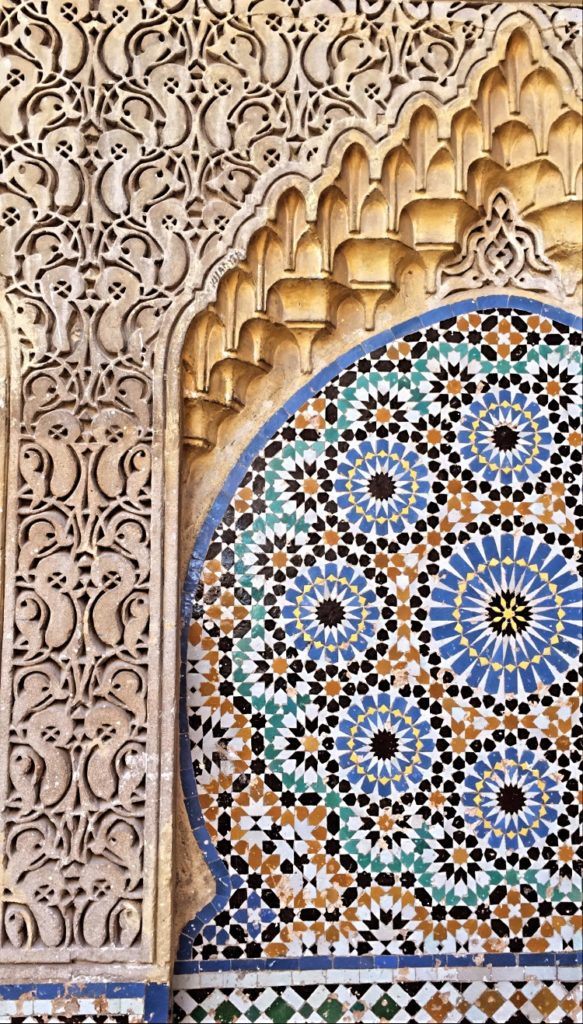
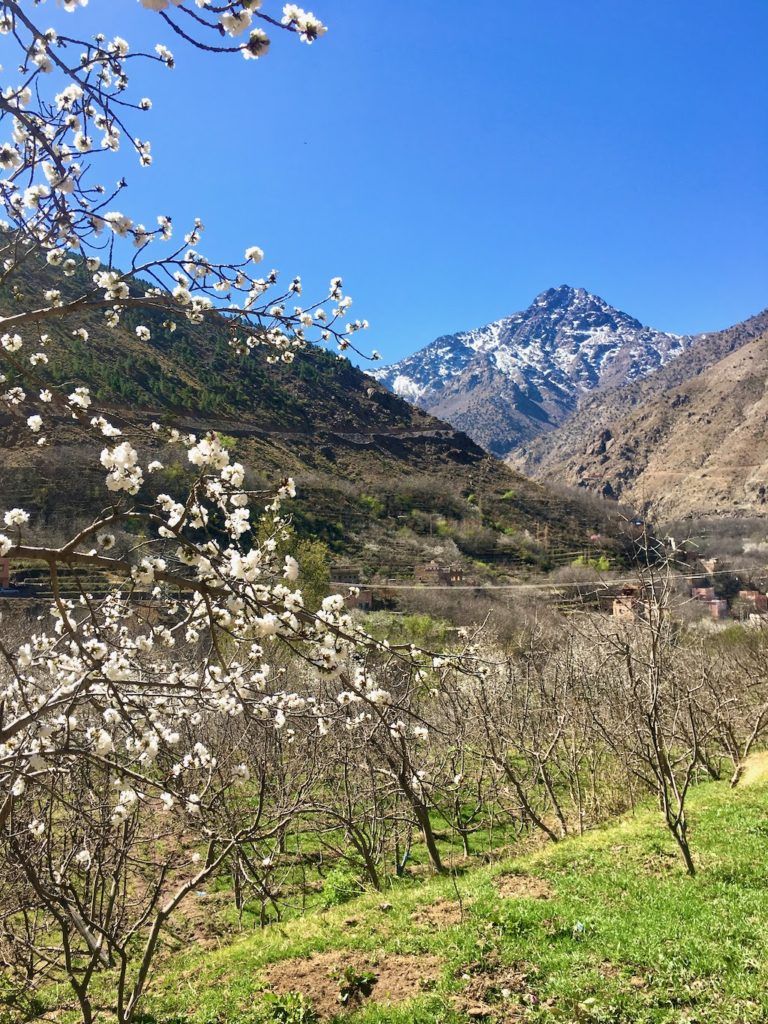
On fashion: You will find that in big cities like Rabat and Casablanca, women dress more freely and in more American styles. Where I live, in the north, it’s much more conservative; people dress more consistently and more similarly. On the street, I notice women wearing long flowy maxi dresses, blouses, high-waisted pants, chunky sneakers, big sunglasses, and a bold red lip. Some women wear headscarves, but a lot don’t as well. There are a lot of young hipsters that dress more similarly to the French art student vibe with jeans, fun prints, and lots of details. Last but not least Birkenstock! They are the shoe of Tangier and I am here for it. There are certain clothing styles that I do not feel comfortable wearing out in public though, like short shorts or crop tops because I would stand out more than I already do as a white woman.
On being an American in Morocco: A lot of Moroccans love America! When they find out that I am American they are excited and want to talk about it and ask me questions, or share a random connection they have with the US. Many Moroccans are tuned into US affairs from politics to TikTok trends. They are often fascinated that I chose to live abroad and are friendly towards me. Some people I’ve met still have the American Dream of making a life for themselves in the land of opportunity. Others do not care about that but find the American mindset very open and are fascinated and curious about our lifestyle.
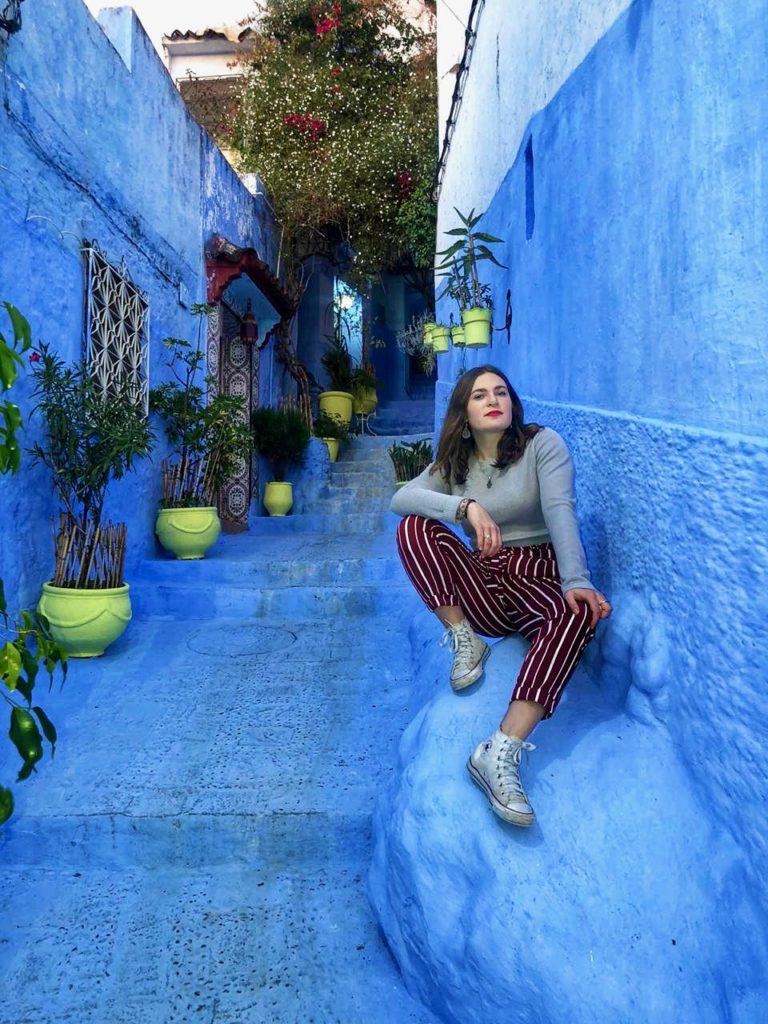
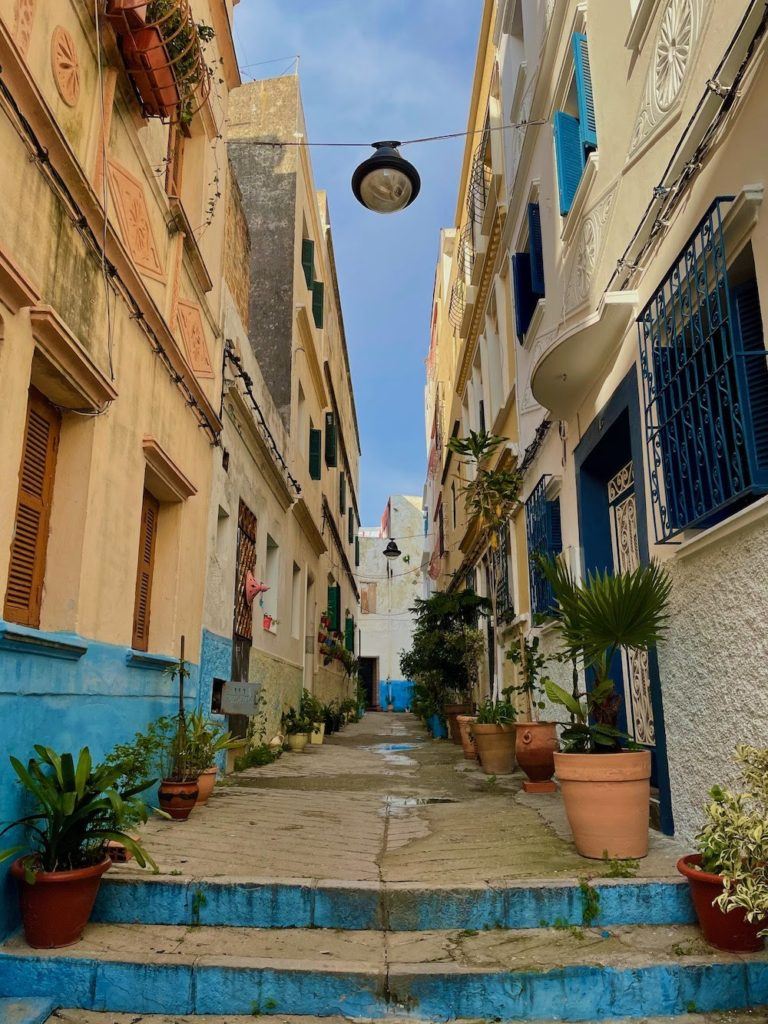
On the local languages: Morocco has two official languages: Arabic and Amazigh. The majority of Moroccans speak Darija, which is the Moroccan dialect of Arabic. I am learning Darija and know enough to use it in interactions at the market, with taxi drivers, or to say hi to my neighbors. But it is difficult because it is so different from English and there are many sounds that we do not use that I simply cannot pronounce. Amazigh is spoken by the indigenous population of Morocco and is characterized as an Afro-Asiatic language; it uses an entirely different alphabet. Many Moroccans also speak French; it is often used as the language of business and government.
On street harassment: I experience street harassment pretty regularly. On a given day in Tangier walking around, I might go 30 minutes with 8 different remarks or none at all. It’s really random. The saving grace is that however angry or annoyed it makes me at times, and often uncomfortable, I rarely feel unsafe. I might get an “hola, muy guapa” or “bonjour”, or a lot of stares and I have been followed, but it has rarely ever been scary. Sometimes it seems they want to shoot their shot, others are just overly friendly or curious, and some are gross, but I do not feel in most cases that the men have bad intentions. I do my best to be vigilant and aware, but I chose to ignore it. I also walk around with my guy friends which greatly reduces the attention I get. It is not fun but it is manageable.
On dating: Dating in Morocco is interesting to say the least. Dating is far more complicated in Morocco as there are several laws and customs that prevent the mingling of genders. Relationships and dating definitely exist but they are more hidden. Sex before marriage is not allowed, but that never stopped anyone. There is certainly no PDA and forget vacationing with a significant other because unmarried Moroccan couples are unable to stay at hotels and Airbnbs, with the exception of foreigners. Like everywhere else, the younger generations are changing and I see couples around and I know people who date and are in serious relationships but often do not tell their extended family. I notice some people living a Hannah Montana-esque life, one fairly conservative with their family and one more freely with their friends. The lack of freedom forces people to act certain ways so I understand how it can be challenging to maneuver around.
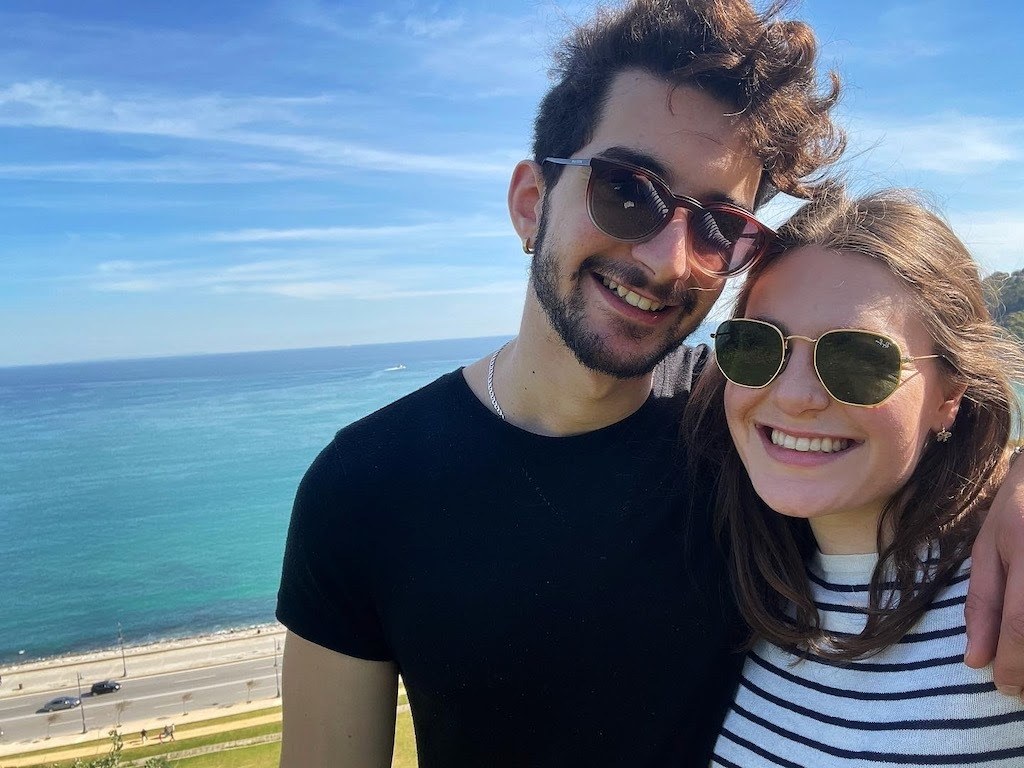
On meeting someone special: I only dated a little and mostly through friends I knew in my first year in Morocco, until I moved to Tangier and was bored and stuck at home for a little while, so I decided to see what Tinder was like there. I was met with a very positive response but because of Covid had little interest in actually going on dates, until I met my now partner of almost one year! I am grateful I did, he has made my experience in Tangier and in Morocco infinitely better. We have encountered some cultural differences and challenges of course, but nothing we could not handle. It is also frustrating to not be able to live as freely in public as we could elsewhere but that has not stopped our happiness.
On missing home: More than anything, I miss my friends and family. Even though I chose to live abroad, that does not make living away from your loved ones easy. I am thankful for Zoom and texting that have kept many of my relationships alive and close despite the physical distance.
On driving: I also miss driving. Although I have rented a car on a few occasions and driven in Morocco I do not drive on a daily basis, and driving in the city is terrifying. I miss nice empty suburban roads and blasting my music with my windows down while driving.
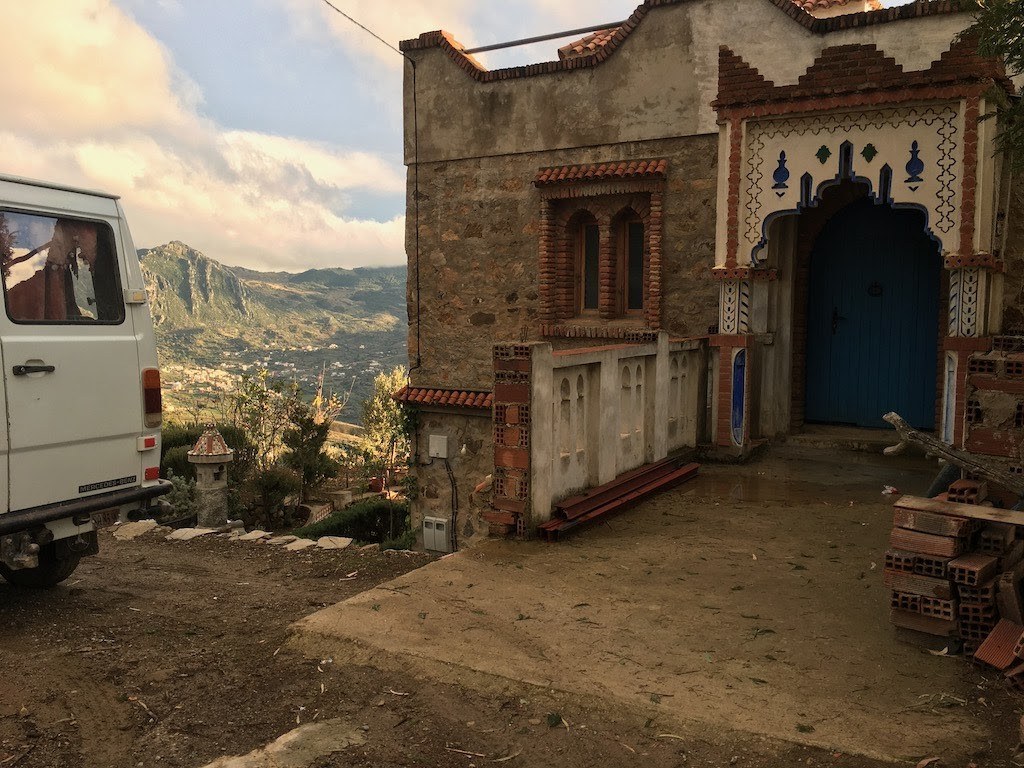
On alcohol: Alcohol is not illegal in Morroco, but it is taboo. That being said, there are liquor stores and some restaurants sell it, though the variety is limited (I miss craft beer and cider!).
But where they lack in beer, Morocco excels in wine. Morocco’s Middle Atlas region has great soil for wine and they produce some very good wine. Morocco makes a unique grey wine that is made with red grapes but in the style of white wine, which produces a light refreshing alternative to rosé, which is a must-try! It’s nice being able to get a good bottle of wine for $9.
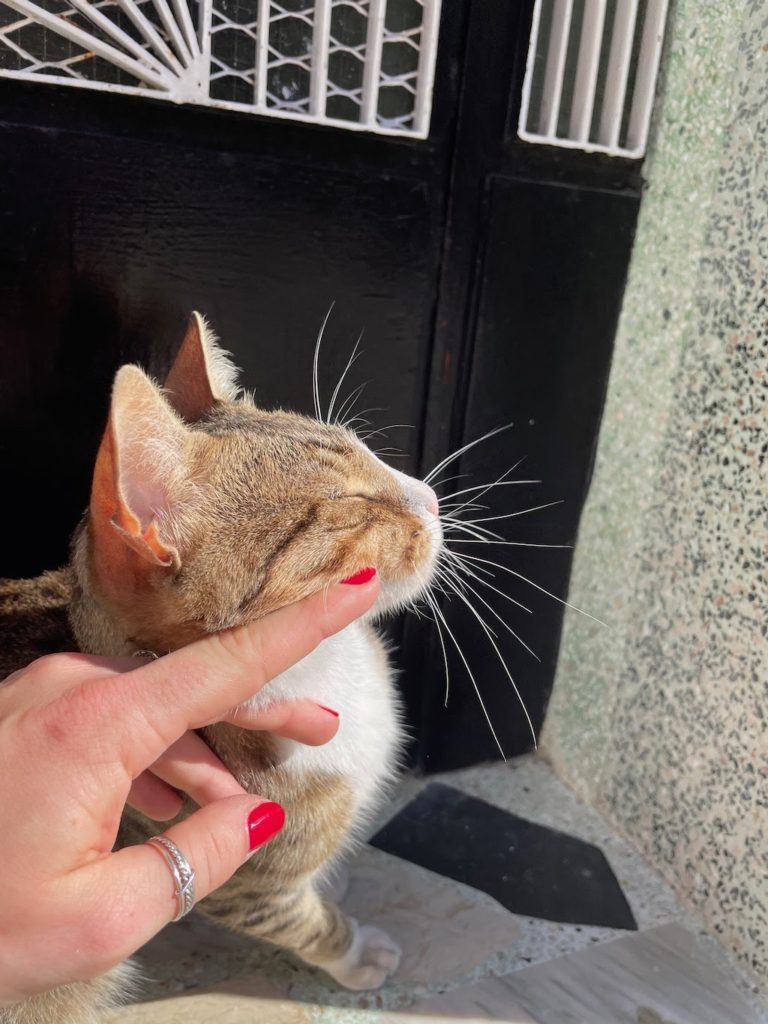
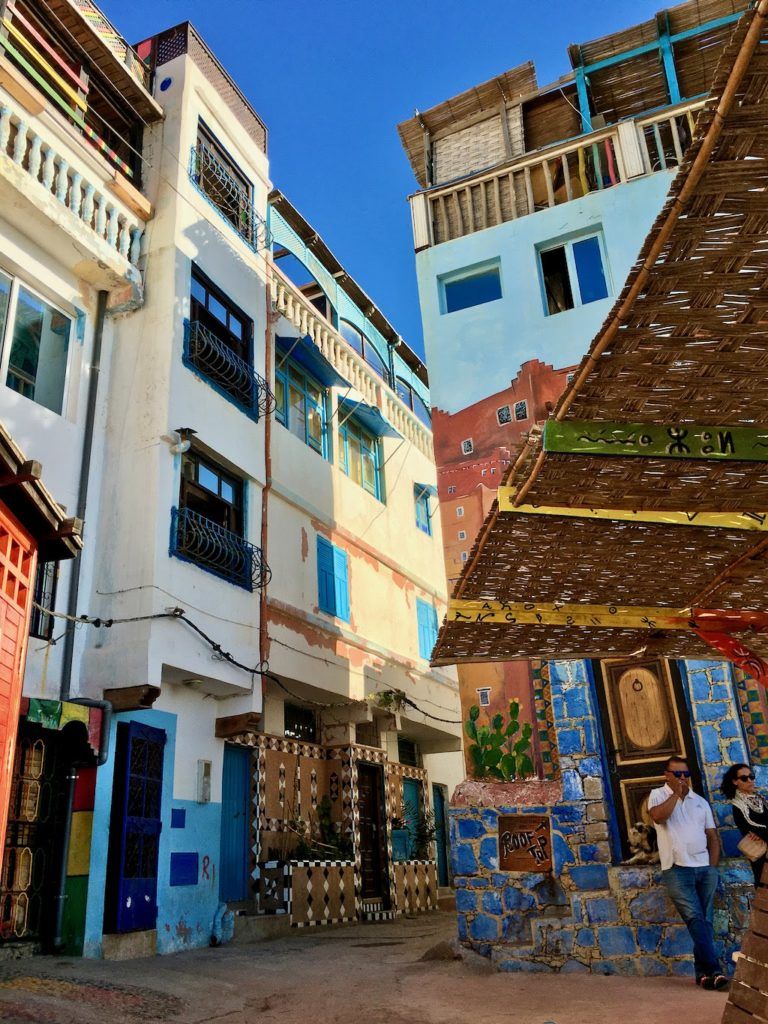
On the worst part of living in Morocco: The lack of freedom. I find it frustrating and kind of surprising how many restrictive laws are in place on women especially in Morocco or various traditions that exist that make it difficult to freely express yourself or live openly. I took for granted my rights as an American but I am grateful for them now. I value the ability to take ownership of my life and that I have the freedom to live it how I please. Although, that is not the case for many people in America to this day, and it is certainly far from the truth in Morocco in some ways.
On the best part of living in Morocco: The people. Connecting with new people who have different stories and life experiences is an eye-opening experience. Morocco is such a beautiful country with beautiful people that mean well and have made my experience so rewarding.
Thank you so much, Sinclair!
The post What Living in Morocco as an Expat is Really Like appeared first on Ashley Abroad Travel Blog.

